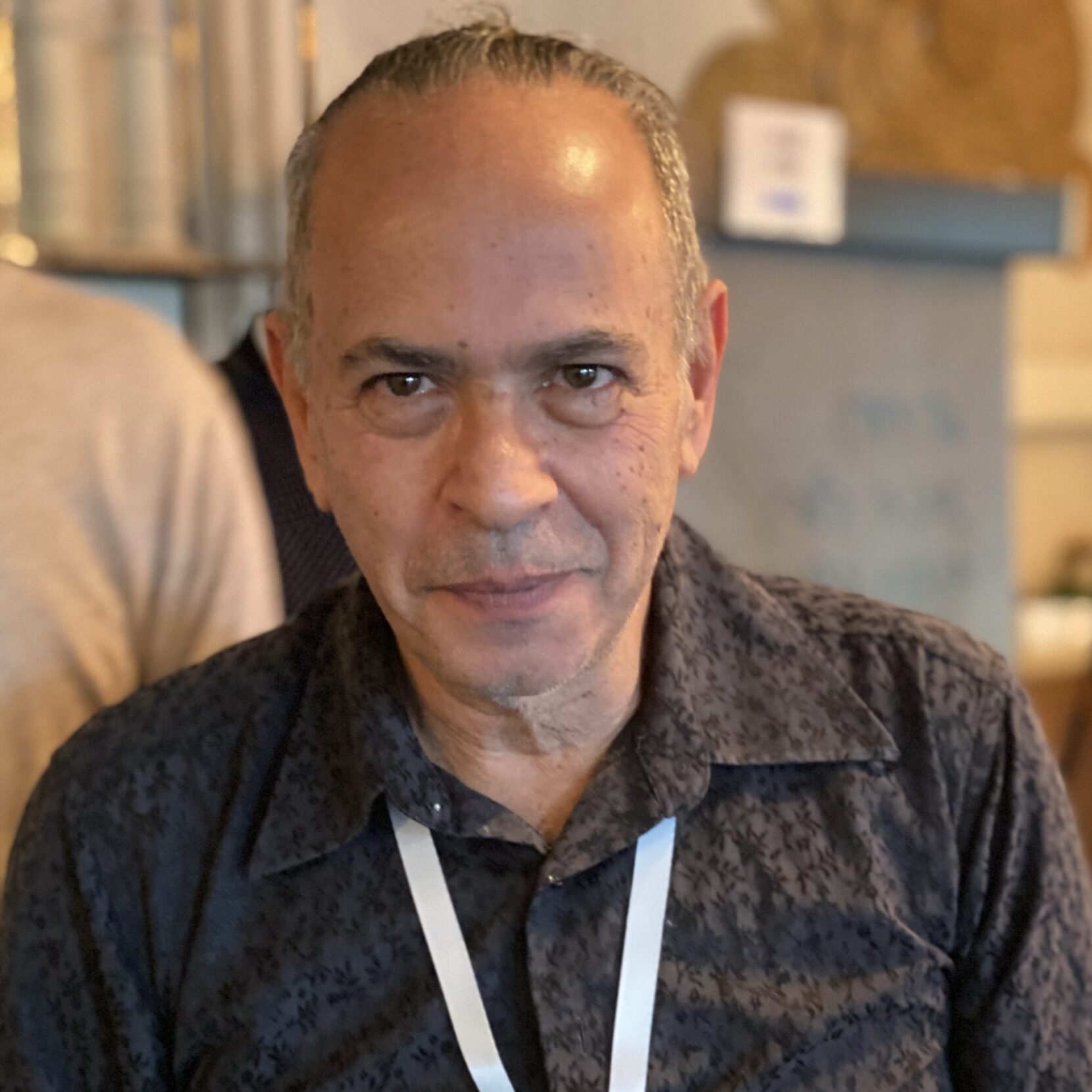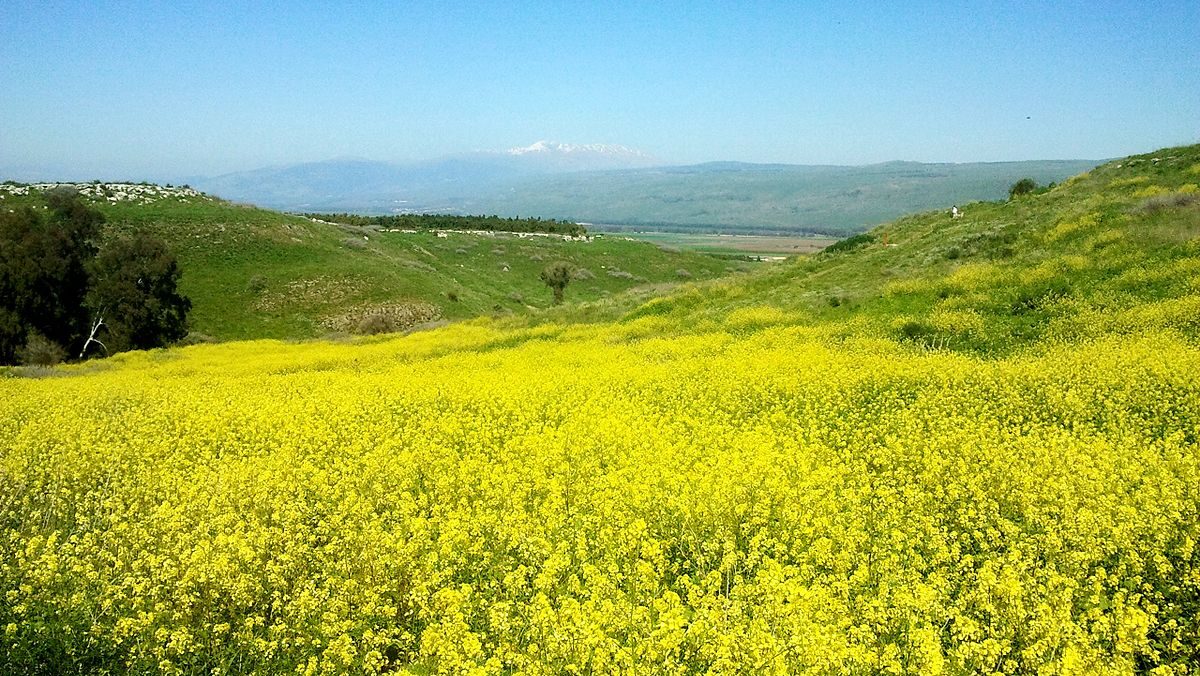Startup Owners, Investors: We Must Have Support in Northern Israel or ‘No Option’ but To Leave
As communities in northern Israel remain evacuated and the once-robust economy there slips towards collapse, entrepreneurs urge the Israeli government to support a return to the north, despite the threat of war with Iranian proxy Hizbullah
More than 70 business and startup owners and investors drove to the northern Israeli community of Kibbutz Mahanayim in the Upper Galilee region near the Lebanese border last week on a mission to show solidarity and support for the once-robust economy there, which today, after nearly five months of war, is slipping towards collapse.
The Iranian proxy Hizbullah has been firing rockets and drones from southern Lebanon into northern Israel since the beginning of the Israel-Hamas war on Oct. 7, and more than 40 northern Israeli communities have been evacuated, displacing tens of thousands of residents.

Giora Salz. (Courtesy)
The head of the Upper Galilee Regional Council, Giora Salz, told The Media Line that half the agriculture in the region has been shut down, tourism has fallen to zero, and up to 85% of the companies that had started up in or relocated to the Galilee region in the past five years had left.
He said the Israeli government is not helping to sustain or revive the region.
“The government is not with us today,” he said. “We have our abilities, but we need the government to work with us, and produce and execute a big economic plan which will lay the foundation [for a return to the north] over the next three to five months. Without the government’s support to recover business, tourism, and agriculture … we will do it, but it will take more time, and the level [quality] won’t be as high, to put it mildly.”

Erel Margalit. (Aaron Poris/The Media Line)
Erel Margalit, founder and CEO of the Jerusalem Venture Partners and Margalit Startup City incubators, told The Media Line, “Every month that goes by, there’s a big price to pay. There are tremendous losses with every additional week that people are evacuated, because people, small businesses, are losing their livelihoods, people that have startups need to relocate them, and a lot of the people are no longer staying.”
Arik Dayan, head of the strategic committee at Tel Hai College in northern Israel and chairman of the Israel AgriFood-Tech Valley association, told The Media Line that billions of shekels had been invested in the college’s campuses and programs, and great damage had been done.

Arik Dayan. (Aaron Poris/The Media Line)
“Today we have nearly 6,000 students,” Dayan said. “But 60% of our students evacuated after the 7th of October. And 60% of the people who work in Tel Hai, which is the biggest employer in the eastern Galilee, with 1,550 employees, are [scattered] from Eilat to Yesod Hama’alah. Meaning that today when we are teaching the students, we are doing a matrix where maybe the lecturer is in Tel Aviv and the student is in a house somewhere in Haifa.”
Additionally, some 500 teachers and students from Tel Hai are still serving in the Israel Defense Forces reserves, requiring special planning to enable them to continue their work.
With the aim of helping to revitalize the Galilee, Margalit announced that he would be willing to host companies at his “startup cities” in Kibbutz Mahanayim and in the evacuated northern town of Kiryat Shmona.
“Margalit Startup City is opening its gates,” he said. “We’re bringing back some of the companies. We’re going to be talking today about some of the initiatives that we’re doing here in the north now, and this will be the sign for many who have already come back, as well as for those who want to come back.”
This holiday season, give to:
Truth and understanding
The Media Line's intrepid correspondents are in Israel, Gaza, Lebanon, Syria and Pakistan providing first-person reporting.
They all said they cover it.
We see it.
We report with just one agenda: the truth.


Margalit said that despite the continuing threats from the north, he believes he can succeed, provided he has support from the government and a few willing pioneers.
“I think that probably more than half of the companies [that previously were in the Galilee] are not ready to come back just yet. But, you know, when the penguins jump into the water at the South Pole, there are always two, three, or four penguins that jump first, and the rest follow. So what we’re saying is that we need to jump first,” he said.
Dozens of company heads and entrepreneurs gathered at the event in Kibbutz Mahanayim to exchange information, express support, and call for pressure on the Israeli government to join their mission. A highlight at the event was the viewing of the site for a new food-tech facility being developed by MIGAL, the Galilee Research Institute for food-tech and agri-tech, in partnership with a French company next to the Margalit center in Mahanayim.
“They [MIGAL] have the research facility, and right next door, we’re working on the facility for [housing] the startups that those PhDs will be developing,” Margalit said.

David Greenbaum. (Dario Sanchez/The Media Line)
David Greenbaum, an investor with the Jewish National Fund, told The Media Line that the JNF’s startup incubator program had been shut down because it was inside the zone evacuated near the border with Lebanon.
“We’re hoping the government will support us to bring the evacuees back so that all of the incubator companies who are represented here today, who want to go back, will be able to do so,” he said. “Anything we can do to bring industry to the north, we think it’s critical to the growth of the nation on a long-term basis, so that we don’t have a population that’s only in Tel Aviv and Jerusalem. That we’ll have a country that is flourishing from Eilat to Kiryat Shmona.”
At Tel Hai before the war, there were some 80 food and agriculture technology startups.
“But after October 7, it all vanished,” Dayan said. “And we are starting to bring them back, but imagine that for two months the government wasn’t there. Nobody understood what was happening. They [the startups] had laboratories, and nearly all of them relocated to Yokneam, to Tel Aviv, to the Technion [in Haifa]. … We ourselves at Tel Hai hosted some labs from MIGAL and Katzrin. How can you bring them back? Some [managers and staff] are in reserves. Some are already established at Weizmann [Institute of Science], some in Yokneam. … It’s like we went back five years.”
The biggest fear from those who spoke to The Media Line was that essential foreign investors who had been put off by the war would continue to remain reluctant to invest in Israeli companies.

Chen Linchevski. (Dario Sanchez/The Media Line)
Chen Linchevski, a founder and partner of Iron Nation, which invests in Israeli startups that have been impacted by the war, told The Media Line that about 700 Israeli companies had applied to him for help. He said that although Israeli companies were still delivering services on time, “foreign investors are reluctant to put money into Israel because they’re afraid that the risk premium is going up, and we need to step in and save those excellent startups.”
“They [investors] are waiting to see that everything is calmed down, and for the last 10 years or even more, we portrayed Israel as a regular country where you shouldn’t be afraid to fly in and out, or walk in the streets, go to restaurants, and so on … and actually the situation is the same, it is like that. But it’s not perceived that way by foreign investors. And I think it will take time for them to recover and come back,” he said. “The more we step in and the more the [Israel] Innovation Authority will step in, the less the damage will be, and the faster we’ll return to prosperity.”
Yuval Klein of MAMAY Technologies, a startup company that is developing objective and communicable measurements for how things taste, said that the investment struggles began in January 2023 during the anti-government protests and were only exacerbated because of the war as potential investors decided to wait for the “right time.”
“And since then, we have been on pause,” he said. “No one is explaining to us what is going to happen. And no one is actually specifically helping us.”

Yuval Klein. (Aaron Poris/The Media Line)
Klein said that if the residents of the north are still evacuated beyond March 31, and if he does not get the funding he needs, he will have no choice but to relocate his company, and he might well relocate it from Israel entirely.
“I came four years ago and moved to the north in order to be part of what is happening. I totally stepped up,” he said. “I came today to Erel [Margalit] and told him if you tell me to come [north] tomorrow, I will come tomorrow. It’s not about the war. It’s not about the situation. It’s not that I am afraid. It’s not. It’s because I just need the minimal things in order to work and when this is taken from me, then I have no options.”
Jonathan Sierra, CEO of Yarok Microbio, a tech company that developed a fast and accurate foodborne bacteria detection product, told The Media Line that he was in a similar situation, with his company at a “very advanced stage” in research and development.
“We just need investment for productization,” he said.
Asked about widespread concerns that a wider war with Hizbullah would break out, Linchevski said that such a war would affect all of Israel, not just the north, and there would be no point in shutting down and evacuating only northern Israel.
“I’m not a military person, but I’m not afraid of Hizbullah coming into Israel. I don’t think this is the game that they are planning. If at all, it will be a game where we [Israeli forces] go there. But [Hizbullah] missiles will cover the entire country,” he said.
All expressed hope that a larger regional conflict would not actually erupt.
Salz said that such a war was neither in Israel’s interests nor in Iran’s. He said he expects that some sort of agreement will be signed between Israel and Hizbullah by May.
“Nobody wants a big war here now. It could happen, but nobody wants it,” he said.

